After a very long recess, I am back at writing my thoughts on film motivated by the latest piece from one of our best directors: Mr. Quentin Tarantino.

Continue reading Film review: Once Upon a Time in Hollywood (2019)
After a very long recess, I am back at writing my thoughts on film motivated by the latest piece from one of our best directors: Mr. Quentin Tarantino.

Continue reading Film review: Once Upon a Time in Hollywood (2019)

April showers bring may flowers… After a frigid Chicago winter, the weather has begun to finally shift and my life continues to be hectic after getting married last month.
In terms of film watching, winter was an opportunity to continue to catch up with the best-received films from 2018 and start to give a look at the 2019 crop.

Just the other day this little space of mine turned 8 years old. As I write these lines it dawned on me that I started writing about film almost a year after I lost my dad. This blog, like many other things in my life at the time, was a manifestation of an idle mind that was seeking for motivation, purpose and new passions in the midst of nostalgia and unshakeable sorrow.
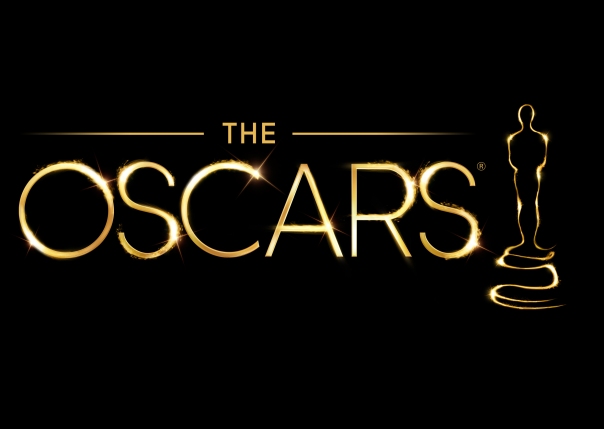
In anticipation of the ceremony for the Academy Awards, I thought it would be as good a time as any to share my impressions on the 2018 crop of movie making.
The thoughts I am about to share are an ever-shifting compendium that may look different in a week, a month, or a year from now.
Continue reading Academy Awards preview: best films released in 2018
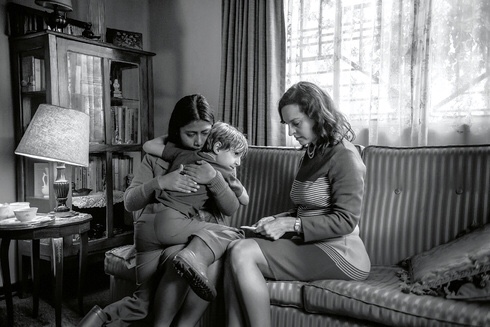
With this post, the first of 2019, I give myself a pat on the back and announce, perhaps only to myself, that I have finally reached my 200th post.
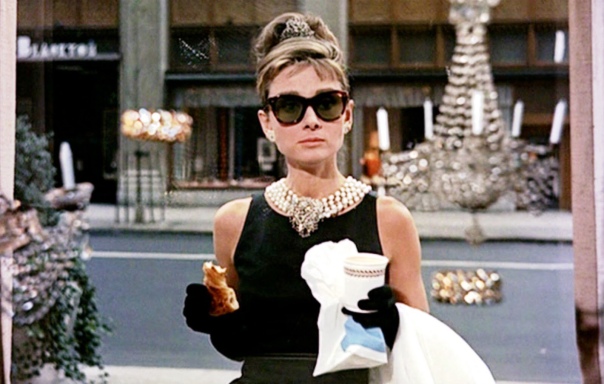
In order to have a meaningful conversation about cinema and grow as a cinephile and film critic one must become fluent in the history of the art. If I hadn’t watched the “40 Year Old Virgin” this year, I may have never understood the relevance of Judd Apatow and the type of comedy he helped usher in the mid-2000s. If I hadn’t watched Todo Sobre Mi Madre (All About My Mother), I would continue to believe (wrongly, I may add) that as good a filmmaker as Pedro Almodovar has shown me he can be, he was incapable of crafting a story that was truly moving and personal. Instead, I learned that Almodovar is much more than a provocateur with a keen eye. At his best, as he proved in Todo Sobre Mi Madre, Almodovar can take the tale of a grieving single mother and make it both intimate and universally inspiring.

Continued from the previous post. Below the new-to-me films watched in October:
VENOM (2018) [ 2/5 ]
In the age of the Marvel Universe, Venom lives surprisingly isolated, coming at the heels of the momentous shift in the Marvel juggernaut brought about by the The Avengers: Infinity War.
In many ways, the film feels like a return to simpler times, where the superhero movies inhabited a space of their own, without the complexity of intersecting stories or the expectations of moving the needle forward, onto greater enemies and bigger spectacles.
In going back to the beginnings of the Marvel Universe, Venom also adopts some of the worst qualities of the early films. There is an overabundance of CGI that, as good as it may be designed, never quite substitutes the real thing. When it comes to CGI action sequences, few are as messy and unremarkable as the one at the film’s end. It reminded me of the Transformer franchise and its tendency to sacrifice clarity for pace and spectacularity.
One of Venom’s most egregious faults is that the script takes the rug from beneath the actors’ feet. The typically solid Tom Hardy is painful to watch here, especially when he shares the screen with the usually fantastic Michelle Williams. The two begin the film as lovebirds but I was never sold on their chemistry.
Same thing happens to Riz Ahmed, whose Macchiavelian Steve Jobs-type genius entrepreneur seems to haven been pulled from a particularly silly entry in the James Bond franchise.
BEFORE SUNRISE (1995) [ 5/5 ]

Candidate to the Blog of Big Ideas’ Top 250 Favorite Films
One of my biggest blind-spots.
Before Sunrise unwraps like a fleeting dream, trapped within a finite context: one day in Vienna. Its scale, like other great romances, both large and intimate. A love story that is young, awkward and perhaps immature, yet wonderful and inspiring nonetheless. Soon, we find ourselves navigating the streets of one of the great European cities with Jesse and Celine, enchanted by the way they look and smile and talk to each other. Vienna is the backdrop, the reminder that these are real people, inhabiting the real world, but completely at their leisure, as if real life is suspended.
Before Sunrise pulls off a trick that only great films can: it captures ephemeral sensations. The beauty in Before Sunrise lives in the shy smile and the coy look. The film exists in the silent understanding between two souls, intertwined by the imperceptible and the flesh.
Before Sunrise is also a series of moments that I can’t stop thinking about. Like the one Jesse and Celine share inside a listening booth, or the exchange they have with a palm reader at an outdoor café. No amount of effort is wasted, no detail unexamined.
This is cinema at its purest; telling us a story as old as time and doing it with purpose, confidence and style. This is, without a doubt, Richard Linklater’s masterpiece.
BEFORE SUNSET (2004) [ 4.5/5 ]
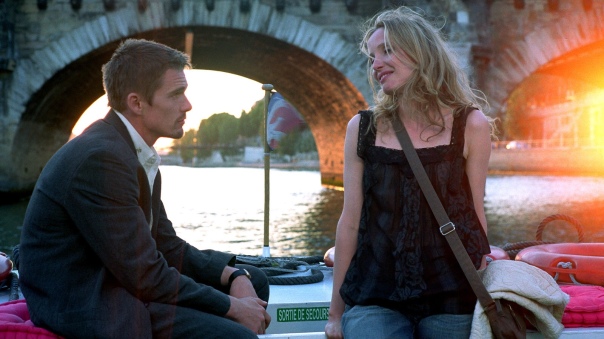
Candidate to the Blog of Big Ideas’ Top 250 Favorite Films
Making a sequel to a successful film is a very difficult task. If that original piece is Before Sunrise, then it’s basically impossible. Yet, somehow, Richard Linklater had the presence of mind to ask Ethan Hawke and Julie Delpy to write the script to the next chapter in the story of Jesse and Celine, now 9 years later, meeting for a second time in Paris.
Before Sunset works because it trusts the legacy of the first film and its audience. The moment we see Jesse, we know so much about him already. As in the original, Linklater completely relies on his leads (or perhaps more), not just by asking them to pen the story of their own characters, but also by lending the camera entirely to them. Once again, the film manages to feel spontaneous, as if the conversation unfolds without a script, and we are but a fly on the wall listening in.
Perhaps the only thing that separates the two films is that Before Sunset carries with it the heaviness of adulthood. The world around Jesse and Celine no longer filled with possibilities and dreams. Their failures and misadventures play more like personal tragedies than momentary setbacks and, unlike Sunrise, their desire for love has been shaken. As such, Sunset plays more like a drama than a romance.
It is only in the last 15-20 minutes that Before Sunset recaptures the magic of its predecessor, but they are, by far, the most exceptional minutes of film I’ve seen in 2018. Within instants the film sheds all of its anger, frustration and sadness while Jesse and Celine share a car ride. At some point, the film flirts with disaster and Celine threatens to end it before it’s over, but the more they open their hearts, the more the two remember just how incredible their day in Vienna had been.
To close, Before Sunset leaves the streets. For the first time in two films, Jesse and Celine share a more intimate space. It is then, in that space, by themselves, away from the noise of the world around them that Celine gives in. She now knows what she wants and Jesse, just like every man with a pulse would, falls hopelessly in love with Celine all over again.
SOLO: A STAR WARS STORY (2018) [ 3/5 ]

One of the unfair commonalities I found in the critical response to Solo centered on the performance of Alden Ehrenreich as Han Solo. I say unfair because it’s a comparison that, regardless of the quality of the young actor’s interpretation of the role, was destined to be scrutinized and subjected to exaggerated criticism.
Is Alden Ehrenreich the perfect younger version of Harrison Ford’s famous character? Not a chance. The problem is not so much about casting, but about the near-impossible task of finding an actor capable of inhabitting the role convincingly without resorting to mimicry. Do I think Alden Ehrenreich could have done better? Probably so. I think that his inexperience with large franchises and famous roles may have had a lot to do with it.
The latest offshoot of the Star Wars colossus actually suffers more with some of the supporting roles due to a mixture of less than inspired writing and questionable casting. While Paul Bettany and Emilia Clarke struggle to fit in and seem to be painfully reciting their lines, I was glad the always reliable Woody Harrelson and the very surprising Daniel Glover (what can’t he do?!) give some dimension and charisma to an otherwise mediocre experience at the movies.
A decent and entertaining enough thriller that will go down as one of the least memorable pieces of the Star Wars cinematic universe.
LEAN ON PETE (2018) [ 3.5/5 ]
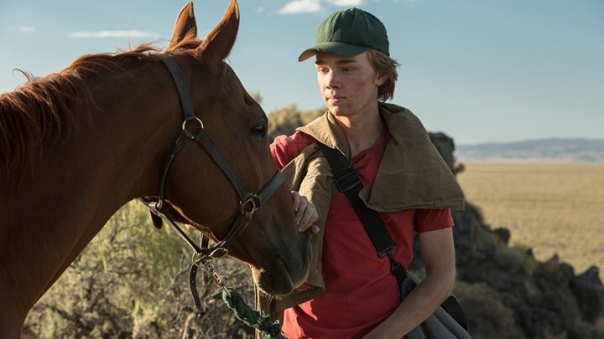
Lean On Pete tells the story of Charley (Charlie Plummer), a young man in his teens, who lives a somewhat peaceful existence (though not entirely happy) with his loving, yet unstable father. A few days after Charley begins to work at a nearby stable, tragedy strikes and his life is turned upside down. The following two-thirds of the film are about Charley’s lonely psychological journey towards a new beginning.
Framed within a very traditional structure, Lean on Pete manages to avoid the pitfalls of melodrama, taking a rather somber approach to tell its tale, following Charley at an arm’s length, as if silently traveling next to him. Writer and director Andrew Haigh adopted a similar approach in his previous two features: the poignant 45 Years (find my review here), and the powerful gay romance Weekend (my 11th favorite film of 2011). In 45 Years, Haigh’s camera took the position of a witness to the fracture of a long marriage. In Weekend, Haigh was there, close to the characters, but the dialogue was so naturalistic, that it felt as if he was filming two actual people falling in love in real time.
True to his style, Haigh gives Lean On Pete an earthy and mundane backbone that keeps it grounded. In the film it feels as if we meet real people with genuine problems and complex personalities. No one is entirely good, and no one is entirely bad. Every character seems to have existed prior to the beginning of the film. When we meet Charley, there is already a hint of past troubles, but it is only when Charley is a direct witness to tragedy that something breaks within him. While his unconventional reaction to such a tragedy speaks to his immaturity, Haigh focuses on Charley’s stubborn determination to find his own happiness. At the end, I was moved not by the accumulated sadness, but by Charley’s strength to overcome the odds.
A GHOST STORY (2018) [ 4/5 ]

How does a film like this get made? How is the pitch to obtain financing? How does it get financed? How does it manage to enlist two excellent actors? I couldn’t help but wonder about these more practical matters as I marveled at the poetic simplicity of A Ghost Story.
David Lowery’s film could be about many things: death, ghosts, loss, and loneliness among them. Regardless of the meaning you assign to it, these things aren’t talked about, they are felt. The film is an exercise in minimalism, foregoing typical narrative paths for a more experiential type of cinema that does with images, light and music what other films do with words and performance. In A Ghost Story there are no more than 10 minutes worth of dialogue (probably more like five). The script couldn’t have been more than a few pages long and most of what is said has an almost anecdotal quality, as if the film exists outside of time.
While the poetic simplicity of A Ghost Story is mostly an asset, there are times when the insistence on minimalism extends to a formal rigor that works against the film’s pace, even when it’s only a short 92 minutes (a particular scene with Rooney Mara eating a pie comes to mind).
Never before has a “ghost story” been so preoccupied with the rather abstract quality of our fears about death, and our hopes and ideas for what comes after we die. If A Ghost Story is anything to go by, our post-living “existence” is a rather somber and lonely one.
HEREDITARY (2018) [ 2.5/5 ]

For most of its running time Hereditary feels like a revisionist horror flick that plays against type. Instead of your typical demons, ghosts or monsters, the suspense and the tension comes almost entirely from a troubling family dynamic that comes to its climax after a shocking tragedy. While it builds upon grief and years of deeply personal guilt to make us feel uneasy and uncomfortable, there is an undercurrent of paranormal activity that adds to the film’s mysteries in subtle and effective ways.
Sadly, most of what Hereditary does right in the first half, soon begins to dissipate, abandoning storylines and interesting secondary themes about womanhood in favor of typical horror fare. As soon as it begins to do so, the film starts to cheapen the scares, taking a more common paranormal trajectory that isn’t groundbreaking in the least. Soon, we bear witness to seances, scribbles begin to appear on a sketchbook and people start climbing up walls and ceilings in what is now a very familiar choice in contemporary horror films. Though there are faint connections to the film’s more studious and patient beginnings, the paranormal portions of Hereditary are surprisingly confusing. At the end, I was left with a sour taste in my mouth, as if Hereditary had tricked me into believing it was a good movie when, in reality, it was far more interested in toying with our expectations and delivering a rather sinister ending.
PS. I was tempted to give Hereditary a higher rating due to Toni Collette’s lead role as Annie Graham, the wife and mother who goes through a roller-coaster of emotions to keep her life and her family afloat.
HALLOWEEN (1978) [ 3.5/5 ]
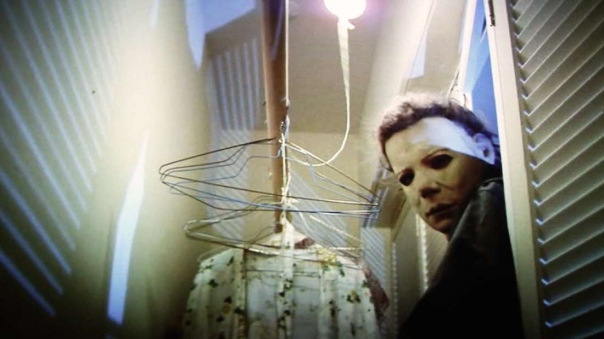
I’d seen fragments of the original John Carpenter film on many different occasions but, in October, just two or three days before Halloween, I sat down to watch it in its entirety.
It is always difficult to fully grasp the historical weight of a piece of film that is 20, 30 or even 40 years old. The original Halloween was an entirely new type of film that borrowed from the grotesque Texas Chainsaw Massacre of 1974 to make the “slasher movie” a Hollywood phenomenon. After Halloween, every horror film either copied its formula or borrowed ideas from it. The original left a definite cultural imprint. Michael Myers soon became one of the most recognizable characters in the history of cinema via a seemingly endless stream of sequels and remakes.
Given its place in movie history, it would be wrong and unfair to judge Halloween in isolation, as if it wasn’t the genesis of an entire catalog of films. To do so would be to ignore Halloween’s finer points. Watching Halloween in its entirety gave me a glimpse of feminist and religious undercurrents that my younger self would have surely missed. In the original, Michael Myers was not the indiscriminate killing machine we’ve come to know. Michael was a silent psychopath still, but one with a brain and a purpose. He didn’t set out to kill just anyone. Michael sought out young women who had started to explore their sexuality. It was, I interpreted, a countercultural statement. The film wasn’t so much about Michael Myers, but about what he represented: a violent and terrifying manifestation of religious conservatism.
Of all the horror films that have tried to emulate Halloween’s deeper significance within the confines of the genre, I am reminded of 2015’s It Follows, where a young woman must escape a seemingly unstoppable anonymous killer just after losing her virginity.
In both films the killers are the enemy not just because they kill, but because they are the violent agents of greater social threats.
PS. Though I concede I may be looking at Halloween from a contemporary and far kinder perspective, Carpenter is the kind of filmmaker whose craft and intent was often overlooked by his tendency to make films that were entertaining and friendly to mainstream tastes.
FIRST MAN (2018) [ 3.5/5 ]

I arrived at First Man with great expectations. After all, this is the same young director who, in the space of two years, would release two cinematic jewels: 2014’s Whiplash, and 2016’s La La Land. Born in 1985, Damien is a constant reminder for me (also born in 1985) of how little I have achieved in comparison.
In his second consecutive film collaborating with Ryan Gosling, First Man is a character study that is not entirely dissimilar to the ones in Whiplash and La La Land. All three films explore the tension between professional greatness and personal growth. In all three Damien argues that reaching for greatness often comes at a cost. While Whiplash and La La Land were more interested in artistic achievement versus romance, First Man poses the same tension but it’s motivated not by ego or desire, but by personal loss. It argues, for purely narrative reasons, that Neil Amstrong, the first man on the Moon, followed a very difficult and dangerous path because it provided an escape from painful memories.
Unlike his previous work, Damien’s exploration of greatness is mostly emotionless. Gosling’s performance here reminds me of some of his past work, especially his turns in The Place Beyond the Pines and Nicholas Winding Refn’s Drive. By design, his Neil Amstrong is a shell that harbors within it years of silent pain. As such, the film becomes a somewhat repetitive grind through scientific and engineering challenges and unfortunate tragedies that fail to register, numbed by Neil’s lack of outward emotion.
Despite First Man’s somewhat rigorous approach to Amstrong’s path to the Moon landing, it does offer moments that illustrate the immense talent of Damien Chazzelle. The sequences in space are something special. They are limited in scale but still deeply effective in showing the dangers of the mission and the claustrophobia of being inside the spaceships. For once, the business of being an astronaut is portrayed in a more meaningful way that bears little resemblance to the romanticized view that Hollywood has helped to perpetuate.

I return to this blog of mine on the verge of crossing 200 posts (this will be my 197th). While 200 may seem like a big number at first, this is one that spans almost 8 years, thus revealing just how little I actually blog.
When I first approached the idea to start a blog, the mission was very different and my life was too. I had more time and more energy for blogging. The lofty goals I had in mind for this site belonged to that context alone.
Often, I like to talk about “life getting in the way of blogging”, or about being “too busy” to really dedicate myself to this pursuit. The truth is that there is always time, like my dad used to say. The problem is mostly about the relationship between effort and output.
In order for me to have the blog I would like, I’d need to de-prioritize certain things in my life that I’m not willing to. When I started this blog I didn’t quite comprehend how much work goes into a single post, especially when you care about what you’re putting out for the world to read. If I had known exactly how much time I would need, I would have perhaps never embarked on this journey.
Having said that, I have enjoyed it so far, even if my audience is about as numerous as the fingers in my hand. If I blogged to get a meaningful audience, I would have given this up a long time ago.
Now…to the topic at hand.
Continue reading Months in Review: September & October films 2018 (part 1)
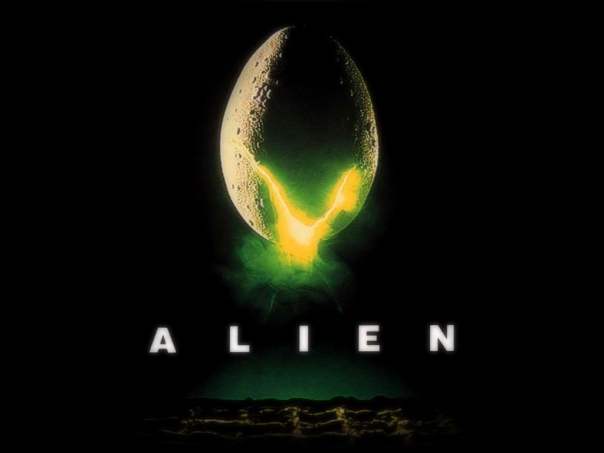
The following post will contain spoilers. Stop reading if you haven’t seen the film
I watched Alien at a very impressionable age. I couldn’t have been more than 6 or 7 years old. Of all the cinematic moments I can highlight in my 33 years on this planet, perhaps none have had quite as big an impact as my first encounter with Ridley Scott’s Alien.
Continue reading Best Moments in Film History #10: The Birth of a Monster – Alien (1979)
With a bit of a delay, below is the second part of my impressions of the new-to-me films I watched in August.
GAME NIGHT (2018) [ 3.5/5 ]

A truly wonderful cast delivers in spades in the often-hilarious Game Night from directors John Francis Daley and Jonathan Goldstein. What impresses most for a movie like this is the directorial prowess with which it’s filmed, adding substance to an already funny film. In the lead Jason Bateman and Rachel McAdams offer chemistry that works both romantically and comically, stealing the show with a couple of stand-out scenes that show how insanely talented these two actors are when it comes to finding the right comedic rhythms.
Continue reading Months in Review: Films of July & August (part 2)